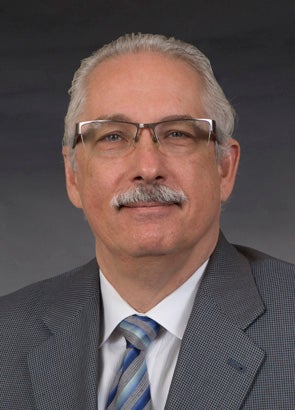Statement on the importance of ending all-male speaking panels
UCAR President Antonio Busalacchi will decline to speak on non-diverse panels
Nov 4, 2019 - by Staff
Nov 4, 2019 - by Staff
A statement from Antonio Busalacchi, president of the University Corporation for Atmospheric Research (UCAR):

Recently, it was brought to my attention that Dr. Francis Collins, the Director of the National Institutes of Health, put out a statement regarding the importance of ending all-male speaking panels (aka “manels”) and his decision not to accept any speaking invitation where attention to inclusiveness is not evident.
At UCAR, we have established a formal program to support and enhance diversity, equity, and inclusion. This is real progress for our organization, and an important part of our process to be more inclusive. A significant area for us to look at is implicit bias because we know it is often the cause of exclusion of people from underrepresented groups. Since we are often not conscious of these biases, cultivating awareness of them is key to reducing their impacts be it on search committees or how we interact with colleagues.
Our commitment to a diverse, equitable, and inclusive work environment also extends to the composition of advisory panels at the National Center for Atmospheric Research (NCAR) and UCAR Community Programs (UCP), both of which are managed by UCAR. In this regard, I do know that both NCAR Director Everette Joseph and UCP Director Bill Kuo are sensitive to the importance of having those that advise us be representative of the community we serve.
When Dr. Collins issued his powerful statement, he challenged other leaders in the biomedical enterprise to join him. Although diversity within and among meteorology, oceanography, and hydrology is different than the health sciences, I accept his challenge. As a leader of this organization I will “walk the talk” and lead by example. From this point forward, I, too, will decline to serve on any speaking panels for which attention to diversity, equity, and inclusion is not evident in the composition of the panels.
If women, people of color, and other traditionally marginalized groups are passed over for panels we lose a diverse range of perspectives. Not only that, it can do real harm to careers. Failing to provide these opportunities means women and people of color cannot demonstrate they have a national or international profile. It can lead to further disadvantages with grant applications, promotions, and ultimately to selection to important bodies such as the National Academies of Sciences, Engineering, and Medicine.
It is now my turn to challenge other leaders in Earth system science to join me.